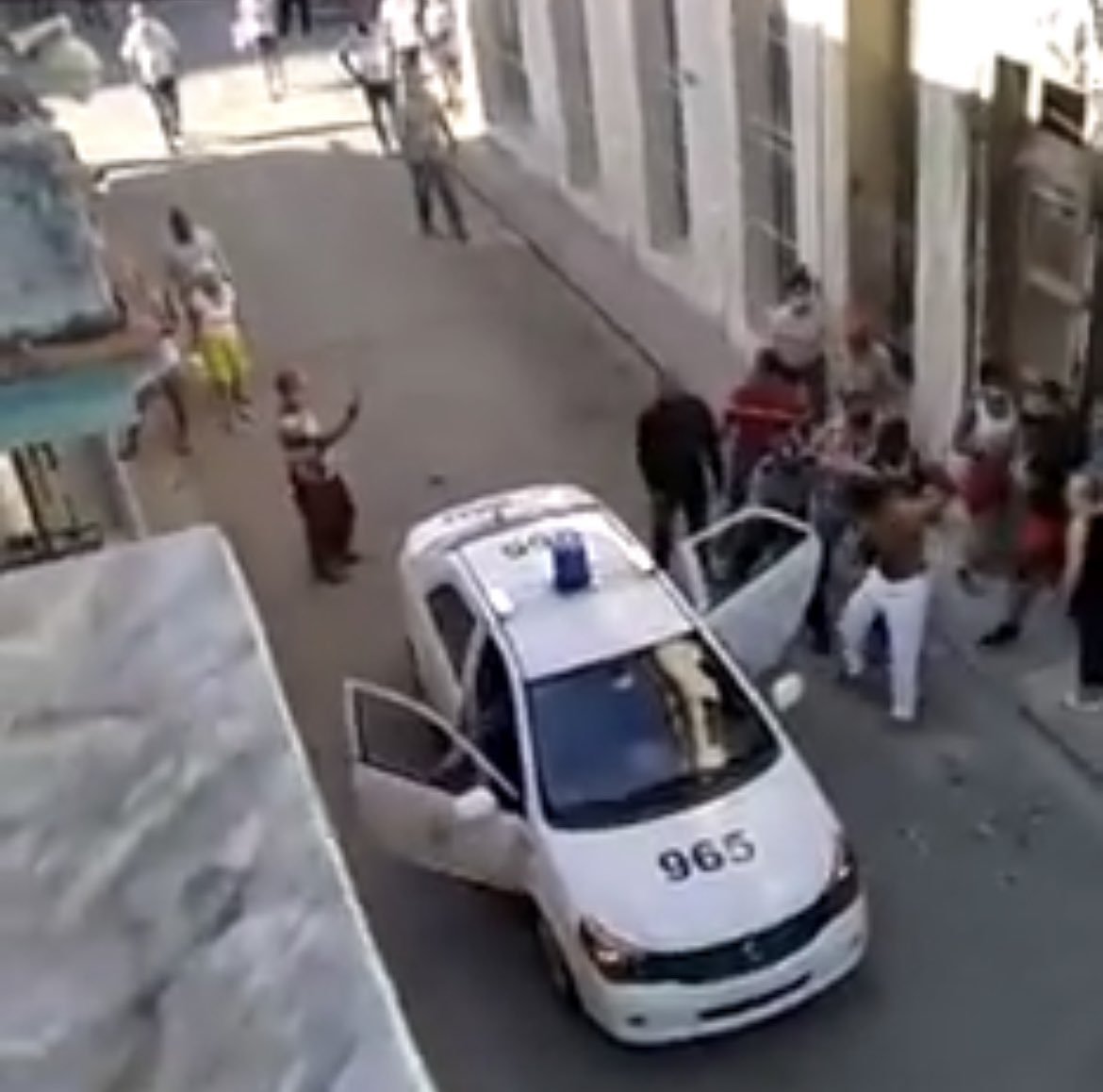Charges against Luis Manuel Otero Alcantara and Maikel Osorbo constitute human rights violations
On April 7. 2022 Anamely Ramos, art curator and close friend of Luís Manuel Otero Alcántara and Maikel Osorbo published the fiscal petitions with the charges brought forward by the prosecutor office in Cuba against both of them. The charges are based on laws that violate international standards and constitute serious human rights violations.
FABRICATED CHARGES against Maykel Castillo: contempt, 3 years; defamation of state institutions, 1 year; for April 4: assault, 6 years; contempt, 3 years; public disorder, 3 years. Joint petition is for 10 years.
FABRICATED CHARGES against Luis Manuel Otero Alcántara: insult to patriotic symbols, 1 year and six months; for April 4: contempt, 3 years; public disorder, 3 years. Joint petition for 7 years.
Fiscal petitions source. Anamelys Ramos, Art Curator and close friend of the artists. FACEBOOK. April 8. 2022
PUBLIC DISORDER
Public Disorder. Article 200 of the Cuban Penal Code.
“1. Any person who, without justifiable cause raises the alarm or makes threats against the general public in public places or at shows or large meetings, shall be subject to between three months and a year’s imprisonment or a fine... or both.
2. If the acts referred to in the previous paragraph are carried out with the intention of causing panic or disorder, or in any other way affect public order, the punishment will be imprisonment of between one and three years or a fine... or both.”.”
Criminal code laws such as Public Disorder has been considered by Amnesty International as:
¨Worded and interpreted by courts in ways that allow for the imposition of unlawful restrictions on freedom of expression and “commonly used to punish free speech and criticism of authorities¨ in Cuba.
Furthermore, the United Nations Human Rights Committee has consistently condemned violations of the right to freedom of expression committed by states [such as Cuba] by arresting or detaining individuals for alleged threats to public order without providing adequate evidence that such measures were necessary. ¨
Reference: Restrictions on Freedom of Expression in Cuba. Amnesty International, 2010 (https://www.refworld.org/pdfid/4c2c444a2.pdf), p. 13.
OFFENDING NATIONAL SYMBOLS
Article 203 of the Cuban Penal Code infringes on the right to protest.
As seen in the cases of Olena Shevchenko, Ukrainian human rights activist and Evan Mawarire, a Zimbabwean pastor, both charged for “offending the national symbols” of their respective countries, these kinds of laws are contrary to international human rights laws.
Article 203 of the Cuban Penal Code violates the “Johannesburg Principles on National Security, Freedom of Expression and Access to Information: Article 19,” which states in Principle 7.C:
“No one may be punished for criticizing or insulting the nation, the state or its symbols, the government, its agencies, or public officials, or a foreign nation, state or its symbols, government, agency or public official unless the criticism or insult was intended and likely to incite imminent violence.”
Reference: “Johannesburg Principles on National Security, Freedom of Expression and Access to Information: Article 19,”(https://www.article19.org/data/files/pdfs/standards/joburgprinciples.pdf), p. 10.
CONTEMPT OF AUTHORITY/DEFAMATION AND LIBEL
Provisions in the Cuban Penal Code such as enemy propaganda, contempt of authority, rebellion, acts against state security, clandestine printing, distribution of false news, pre-criminal social dangerousness, Illicit associations, reunions, and demonstrations, resistance and defamation and libel have used the Cuban government against its critics have been considered by Amnesty International as intended to “restrict the peaceful exercise of freedom of expression, and freedom of peaceful assembly and association.”
The Rapporteur for Freedom of Expression of the Inter-American Commission on Human Rights (IACHR) has stated that “numerous sections of the Penal Code are used to suppress journalists and others who speak out against the government. Many of the offences, which subject the accused to prison terms, are vaguely defined so as to apply to a wide range of speech.” The lack of independence and impartiality of the judiciary means that these vaguely worded offences have been used to punish the legitimate exercise of freedom of expression. In some cases those found guilty have been sentenced to lengthy prison terms.
Reference: Restrictions on Freedom of Expression in Cuba. Amnesty International, 2010 (https://www.refworld.org/pdfid/4c2c444a2.pdf)









